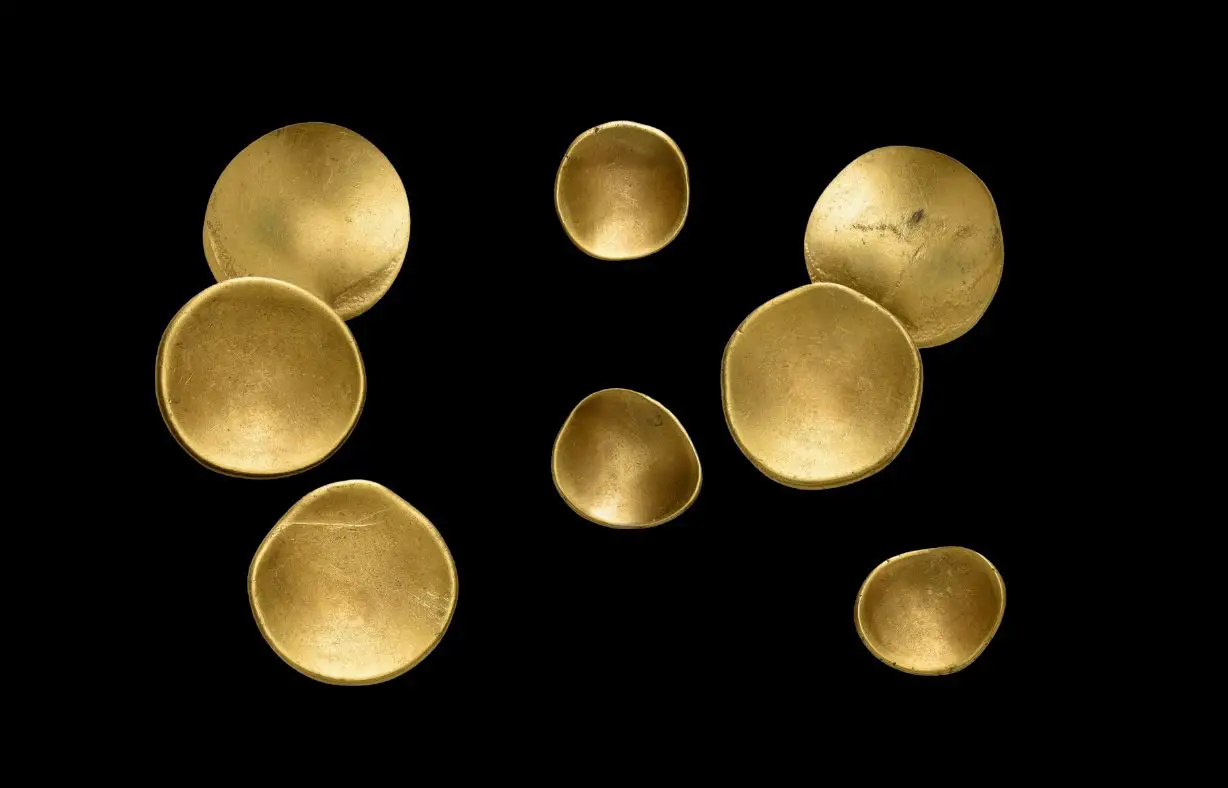An Iron Age hoard of gold coins has been uncovered near the village of Baitz, in the Potsdam-Mittelmark district of Germany.
The discovery was made by Wolfgang Herkt, an amateur archaeologist from the Brandenburg State Office for Monument Preservation and the Archaeological State Museum (BLDAM), who initially found 10 coins and reported his discovery.
Archaeologists have since found 41 coins in total, consisting of mainly gold coins, with some silver and copper examples as well.
The coins are curved in appearance and are known as “regenbogenschüsselchen,” which translates as “rainbow cups.” This type of coin dates from around 2,000 years ago and is normally associated with Celtic cultures not indigenous to the Brandenburg region.

Instead, the hoard was found in an ancient settlement associated with the early Germanic Jastorf culture, an Iron Age material culture that evolved out of the Nordic Bronze Age in northern Germany and Denmark from the 6th to 1st century BC.
Why the hoard was deposited is a mystery to the researchers, but the similarity of the each coin suggests that they were likely buried all at once.
Archaeologists suggest that the find sheds light on the far-reaching networks of Iron Age Europe, with the hoard being the second largest of this type found within the Brandenburg area.
Wolfang Herkt who made the initial discovery said: “This is an exceptional find that you make only once in a lifetime. It is a good feeling to be able to contribute to the history of the country with such a find.”
Header Image Credit : M. Pilekić





